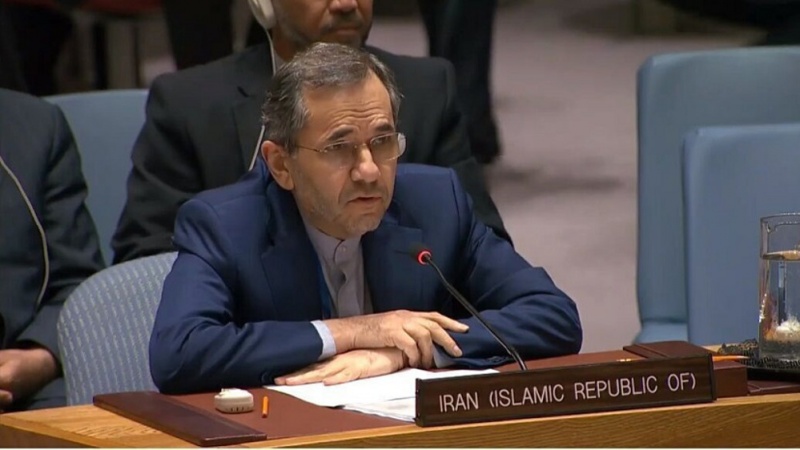AhlulBayt News Agency (ABNA): Iranian Ambassador to the United Nations Majid Takht Ravanchi says unilateral coercive measures, especially at a time when the world is grappling with the coronavirus pandemic, pose a threat to food security in the targeted countries, stressing the necessity of their swift and complete removal.
“Under the current difficult circumstances caused by COVID-19, unilateral coercive measures seriously jeopardize the food security and nutrition of ordinary citizens in targeted countries and hamper access to basic medical services,” Takht Ravanchi said in an address to the 54th session of the United Nations’ Economic and Social Council’s Commission on Population and Development on Wednesday.
According to Press TV, he added “As the representative of a country whose people have been targeted by the most brutal and illegal unilateral coercive measures, I want to seize this chance and call for the immediate and complete removal of all these measures to ensure full access to the goals of economic and social development.”
The abolition of these measures would enable countries targeted by vicious goals to effectively protect their people in the face of the COVID-19 pandemic and revitalize their economies with the purpose of ensuring public welfare, he said.
The Iranian envoy said the coronavirus pandemic have had destructive consequences for food security, nutrition and healthcare systems.
“The lack of access to necessary nutritious food will have severe and life-long developmental consequences for women, children and the most vulnerable people,” Takht Ravanchi said.
He warned that the international community’s failure to take immediate action would cause hundreds of millions of people across the world to face severe poverty and hunger.
Medicine, medical supplies and health commodities have also been targeted, through tight restrictions of foreign exchange resources, violating the people’s right to health and life, he added.
Takht Ravanchi said, “Despite all the restrictions and pressures caused by illegal sanctions, the Islamic Republic of Iran has taken concrete steps to reform the existing policies, improve the overall sustainability of food systems and ensure food security as well as nutrition for vulnerable populations throughout the country.”
He further noted that Iran hosts more than three million refugees and continues to live up to its humanitarian commitments and, among other services, has offered the opportunity of study to refugee children at Iranian schools.
Addressing a special session of the United Nations General Assembly in response to the COVID-19 pandemic in December, Iran’s Minister of Health, Treatment and Medical Education Sa'eed Namaki said the unilateral sanctions imposed on the country have targeted medicine and medical equipment needed by the nation, particularly at the time of the deadly coronavirus pandemic.
Namaki said it was very crucial for everyone to have timely, cost-effective and equitable access to diagnostic, medical equipment, medicines and vaccines with no discrimination, sanctions or unjustifiable prioritization.
/129

